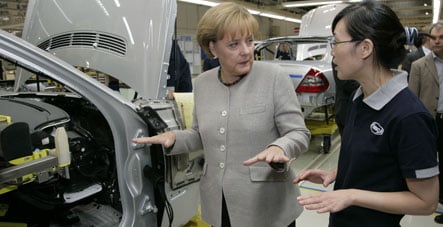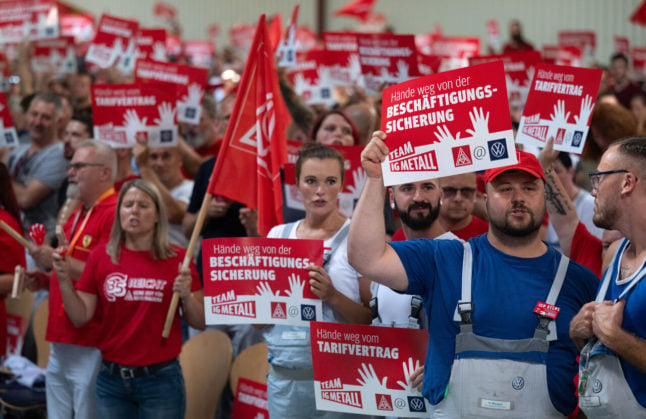“We know that we can influence events in Germany,” Merkel said at the conclusion of the Asia-Europe summit in Beijing. “Which is why the government will take measures where we can help specific sectors” that are troubled, she added without going into detail.
“We can see that trust in the financial markets has yet to be fully restored,” Merkel said, following another week in stomach-churning losses in world stock markets, during which major indices in Europe, Asia and the United States fluctuated wildly.
She also called for a reform of the battered financial system — including substantially more oversight — as the only way to prevent future crises of this nature.
The DAX in Frankfurt dropped at times by nearly 10 percent on Friday before recovering, ultimately closing down close to five percent as news about falling corporate profits and rising jobless claims dogged investors.
Germany’s finance minister meanwhile grimly predicted that the financial crisis will last at least until late 2009, and it will take years for Germany to gauge the ultimate costs of its rescue plan.
“The risk of collapse is far from over. It would be wrong to lift the
alarm,” Finance Minister Peer Steinbrück told the weekly Bild am Sonntag newspaper.
The €480-billion ($610-billion) rescue package for banks approved a week ago is to last through next year, “and we will certainly need it for that duration,” he predicted.
“We won’t know whether the rescue plan will entail real costs until between 2010 and 2013,” he added.
German banks have so far been reluctant to ask for state aid under the rescue plan, with one analyst suggesting they are wary of losing autonomy and of being stigmatised by their peers.
But state bank BayernLB this week asked for a capital injection of 6.4 billion euros, including 5.4 billion euros from the federal government, the first bank to have applied for help under the government scheme.



 Please whitelist us to continue reading.
Please whitelist us to continue reading.